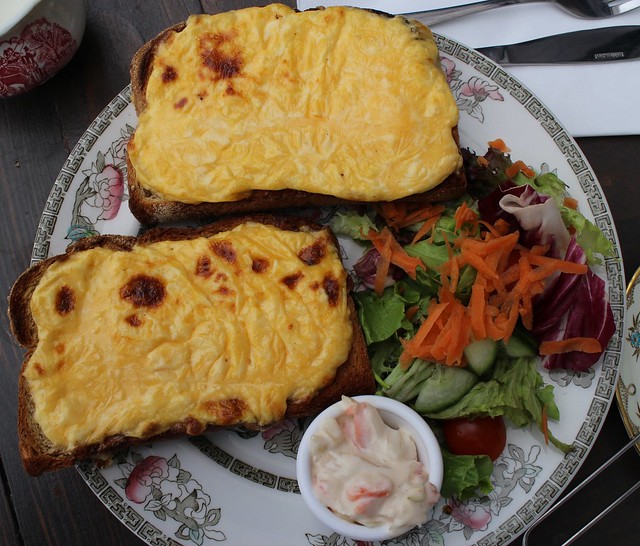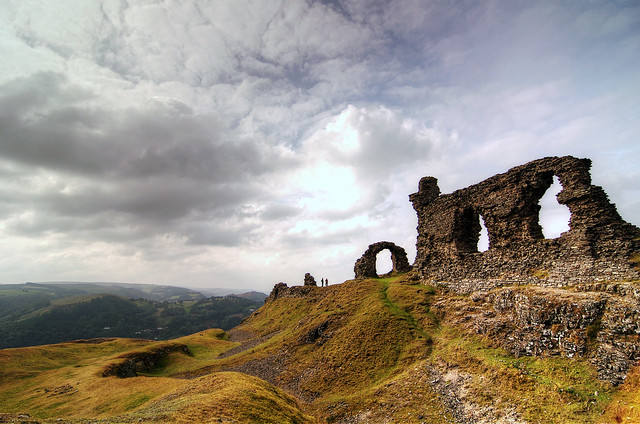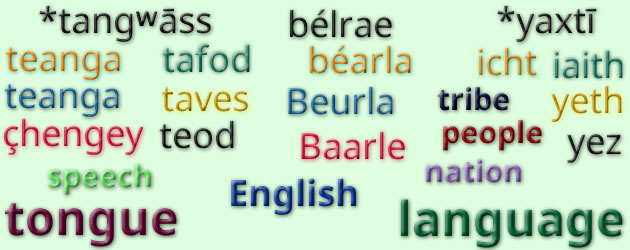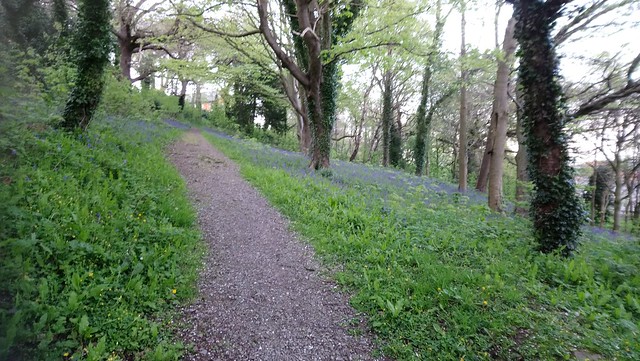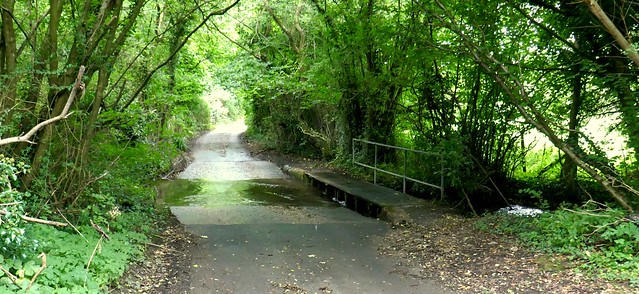Hre are a few words for caves, hollows and related things in Celtic languages.
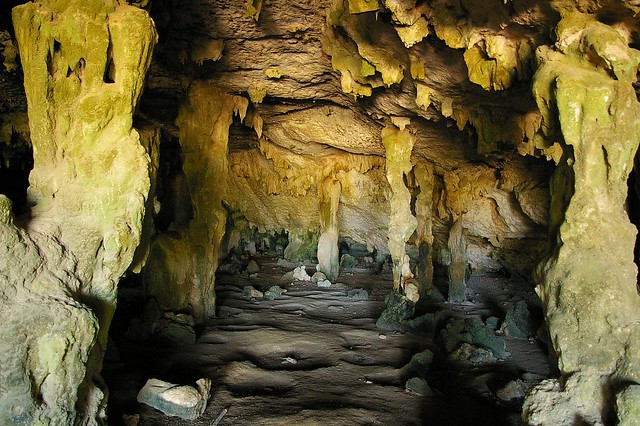
Words marked with a * are reconstructions.
| Proto-Celtic |
*oumā = cave |
| Old Irish (Goídelc) |
úam = cave |
| Middle Irish (Gaoidhealg) |
úam, úaim, úama = cave, den, lair, cellar, crypt, vault, grave, tomb, pit
úamach = a cave-dweller |
| Irish (Gaeilge) |
uaimh [uəvʲ] = cave, souterrain, underground chamber, cellar, crypt, vault, den of thieves, pit
uaimheadóireacht = exploration of caves, potholing
uaimheolaí = speleologist
uaimheolaíocht = speleology
uaimheolaí = speleologist
uaimh ifrinn = pit of hell
uaimh ladrann = den of thieves |
| Scottish Gaelic (Gàidhlig) |
uamh [ũə̃v] / uaimh = cave, den, hollow, grave, grotto
uamh-thalmhainn = souterrain, underground passage |
| Manx (Gaelg) |
oghe = cave, oven
ooig = den, cavern, grotto, antar, pit, stope, hotbed, cave
ooig-oaylleeaght = speleology |
| Middle Welsh (Kymraec) |
guocof, guocob, gogof = cave
guocobauc, ogouawc, gogofawg = full of caves, cave-like, cavernous |
| Welsh (Cymraeg) |
(g)ogof [ˈɔɡɔv / ˈoːɡɔv] = cave, cavern, grotto, cleft, cavity, den, lair
ogofa = to explore caves, caving, pot-holing, speleology
ogofaidd = cave-like, cavernous
ogofaog = cave-like, cavernous, fulls of caves
ogofäwr = caver, pot-holer
(g)ogofog = full of caves, cave-like, cavernous
ogofwr = cave-dweller, troglodyte
ogof l(l)adron = den of thieves |
| Middle Cornish (Cernewec) |
ogo, ogos = cave, cavern |
| Cornish (Kernewek) |
gogow = cave, cavity |
Etymology: from the Proto-Indo-European *h₁ewn- (empty) [source].
| Old Irish (Goídelc) |
fochla = burrow, burrowing, den, digging |
| Middle Irish (Gaoidhealg) |
fochla = digging, rooting, burrowing, cavity, hole, burrow, den
fochlach = hiding-place
fochlaid = burrowing, undermining, uprooting, cavity, hole, pit |
| Irish (Gaeilge) |
uachais = burrow, cavity, lair, den |
| Scottish Gaelic (Gàidhlig) |
fuathais = den (obsolete) |
| Proto-Brythonic |
*fowyā = den, lair, cave |
| Middle Welsh (Kymraec) |
ffeu, ffau = den, lair, cave |
| Welsh (Cymraeg) |
ffau = den, lair, burrow, set, covert, cave |
| Middle Cornish (Cernewec) |
fow = den, cave, a lurking place of wild beasts
|
| Cornish (Kernewek) |
fow = cave |
Etymology: from the Latin fovea (pit, hole in the ground, snare) the Proto-Indo-European *bʰow- (pit, hole) [source].
| Proto-Celtic |
*tullos/*tullom = pierced, perforated, hole |
| Old Irish (Goídelc) |
toll = perforated, pierced, hole
tollaid = to pierce, perforate |
| Middle Irish (Gaoidhealg) |
toll = pierced, perforated; hollow, empty, tonsured, vain, ineffective; hole, fault; buttocks
tollad = act of piercing, attacking, penetrating, impugning
tollaid = piereces, penetrates
tollus = perforation
tretholl = piereced, hollow
tuille = hollowness |
| Irish (Gaeilge) |
toll [t̪ˠoːl̪ˠ/t̪ˠəul̪ˠ/t̪ˠʌl̪ˠ] = hole, hollow, posterior, buttocks, piereced, perforated, empty, deep (voice), to bore, pierce, perforate
tolladh = borning, perforation
tolladóir = borer, piercer, perforator
tolladóireacht = (act of) boring
tollán = tunnel
tollmhór = big-bottomed, bumptious
tolltach = piercing, penetrating |
| Scottish Gaelic (Gàidhlig) |
toll [tɔul̪ˠ] = hole, penetration, hole, hold (of a ship); to bore, perforate, gore
toll-guail = coalpit
toll-iuchrach = keyhole
toll-putain = buttonhole
toll-sìolaidh = plughole
tolltach [tɔul̪ˠdəx] = full of holes, holed
tolta [tɔul̪ˠdə] = bored, perforated, gored
tollan [tɔl̪ˠan] = orifice |
| Manx (Gaelg) |
towl = aperture, bore, cavity, crater, hole, hollow, leak, penetration, pothole, shaft, vent
towl buird = pigeonhole
towl conning = rabbit hole
towl dhull = plughole
towl doo = black hole
yn towlagh = penetrable |
| Middle Welsh (Kymraec) |
tull, twll, twlh = hole, hollow, pit |
| Welsh (Cymraeg) |
twll [tʊɬ] = hole, aperture, dimple, hollow, pit, cave, burrow, den, orifice
twll agoriad, twll (y) clo = keyhole
twll botwm = buttonhole
twll cath = cat-flap, cat-door
twll cesail. twll y gesail = armpit
twll cwinngen = rabbit burrrow
twll du = black hole
twll (y) grisiau = stairwell |
| Middle Cornish (Cernewec) |
toll = hole, perforation
tolcorn = flute, fife (“horn with holes”)
tollec = full of holes, perforated, hollow
tolly = to make a hole, to perforate |
| Cornish (Kernewek) |
toll = burrow, hollow, hole, opening, orifice
toll alhwedh = keyhole
toll boton = button hole
toll konin = rabbit burrow
toll lavrek = fly (in trousers)
toll y’n fos = cash dispenser (“hole in the wall”)
tollek = holed, leaky, perforated |
| Old Breton |
tull = foramen (aperture or opening produced by boring) |
| Middle Breton (Brezonec) |
toull = pierced, leaky, deep, hollow, empty; hole
toulladur = digging, excavation, piercing |
| Breton (Brezhoneg) |
toull [ˈtulː] = holed, pierced, hole, embrasure, entrance
toull du = black hole
toulled = thole (pin)
toullet = perforated |
Etymology: from Proto-Indo-European *tewk- (to push, press, beat, pierce, perforate), from *(s)tew- (to push, hit) [source].
Words from the same Proto-Celtic root include tollo (hole in the ground where hunters hide, rainwater puddle) in Spanish, toll (pool, puddle) in Catalan, tol (ditch, dam) in Galician [source].
Words from the same PIE root possibly include tkát (to weave) in Czech, tkać (to weave, stick, tuck) in Polish, and тъка [tɐˈkɤ] (to spin, plait, entwine, weave) in Bulgarian [source].
| Proto-Celtic |
*kuwo-/*kawyos = hollow |
| Old Irish (Goídelc) |
cúas = hollow, cavity, cave |
| Middle Irish (Gaoidhealg) |
cúa, cuae, cua, cúe = hollow, empty’ bell-shaped cup, nut
cuäch, cúach = cup, goblet, bowl, cauldron
cúachda, cuachda = cupped, hollow
cúas, cús = hollow, cavity, cave, cavern, lair, den, shelter
cuithe = put, pitfall, prison, dungeon, well, pool, whirlpool |
| Irish (Gaeilge) |
cuas = cavity, hollow, recess, cove, creek
cuasach = cavernous, hollow, concave
cuasacht = concavity
cuasán = (small) cavity |
| Scottish Gaelic (Gàidhlig) |
cuas [kuəs] = hollow, cave, cavity
cuasach [kuəsəx] = cavernous
cuasan [kuəsan] = small hollow/cavity, small cave |
| Proto-Brythonic |
*kow = hollow |
| Middle Welsh (Kymraec) |
cev, keu, kau = hollow, empty, sunken |
| Welsh (Cymraeg) |
cau = hollow, empty, sunken, false, deceitful, enclosing, shut, closed, vacuum, cavity, inwards, bowels
yghau = closed, shut |
| Middle Cornish (Cernewec) |
*cew = hollow |
| Cornish (Kernewek) |
kew = hollow, enclosed field, paddock, small enclosure |
| Old Breton (Brethonoc) |
cau = covered |
| Middle Breton (Brezonec) |
queu, keu, kev = hollow, concave, deep
que = cavity, cave |
| Breton (Brezhoneg) |
kev = cave, concave, hollow, cavity
kevded = concavity
keviadur = excavation
kevian, keviañ = to excavate |
Etymology: from Proto-Indo-European *kewh- (vault, hole) [source]. , or from *ḱowh₁ós (hollow), from *ḱewh₁- (to swell) [source]. The English words cave and cavity come from the same roots.
The Breton word kavarn (cave, cavern, den, lair) comes from the same PIE root, probably via the Latin caverna (hollow, cavity, cave, cavern), from cavus (hollow, concave), from the Proto-Italic *kawos [source].
Other words in Breton for cave are groc’h, mougev and roc’h toull. There don’t appear to be any cave-related words that are cognate with the other Celtic languages.

Sources: Wiktionary, Am Faclair Beag, Online Manx Dictionary, Teanglann.ie, eDIL – Electronic Dictionary of the Irish Language, In Dúil Bélrai English – Old Irish glossary, Geiriadur Prifysgol Cymru, Gerlyver Kernewek, Dictionaire Favereau, TermOfis, English – ProtoCeltic WordList (PDF), Etymological Dictionary Of Proto Celtic
